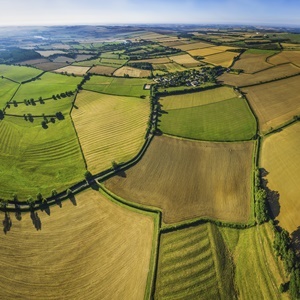
Last week’s land debate in the Eastern Cape almost degenerated into chaos in Komani, formerly Queenstown, when white farmers and land-hungry blacks clashed over ownership of the land and the amendment of section 25 of the Constitution.
The town hall was filled to capacity and could not accommodate everyone, many people were locked outside.
Security personnel had their hands full trying to keep peace and order.
Chairperson of the parliamentary committee Lewis Nzimande had to constantly intervene as tempers went high and sometimes derogatory sentiment that could be deemed as hate speech was expressed.
Things almost got out of hand when livestock farmer Peter Prinsloo of Queenstown addressed a Black First Land First member, Vuyolwethu Mqodi, who had spoken before him.
Prinsloo asked: “What are you going to do with the land when you get it back? Are you going to eat it? Because we know you don’t know how to use it.”
This was after Mqodi had called for land expropriation without compensation with immediate effect or there would no elections next year.
Prinsloo’s address was followed by loud heckling from the majority of black people, who demanded that he either sit down or leave the hall.
Ndzimande’s pleas to allow Prinsloo to finish his address fell on deaf ears, with one angry group at the back chanting in isiXhosa: “Singanibetha sithanda (We can beat you up if we want to).”
This was in what could be seen as reference to the white farmers inside the hall.
When calm was restored the debate was almost centered along racial lines.
Blacks wanted section 25 to be either scrapped or amended to allow for land expropriation without compensation to take place, while their white counterparts wanted the status quo to remain for the sake of food security and peace.
Most of the blacks spoke from their hearts, while some of their white counterparts read from prepared notes.
Robert Brown (42), a livestock farmer in Somerset East, said he believed the process was not fair as preference was being given to people who supported the change in section 25 to express their views: “Unfortunately, I think only four white farmers, if you want me to be racial about it, were given a chance. My biggest problem with that is that it results in downright theft, simple, because if I bought a farm now somebody might take it from me and I see nothing of the money I have paid for that farm.”
He said his family owns 1 400 hectares: “It was my father’s farm and I have taken over, and now I am farming the farm. I don’t think section 25 should be amended. Land redistribution and empowerment of upcoming black farmers can easily happen within the framework of the Constitution. You need a willing government who can implement it. The government has failed its people.”
He said all farmers would oppose the amendment of section 25 to protect their livelihoods.
Asked how his family acquired the farm, Brown said: “It was a long time ago. It was on auction in 1937. But I don’t know how much they bought it for.”
Andile Ndam, a member of the Economic Freedom Fighters, said section 25 in its current form should be completely scrapped because in Komani the land occupied by farmers belongs to blacks.
“If you look at section 25, it is an apartheid era law. I am saying while we are still being nice and talking friendly to each other, section 25 must be done away with and the land returned through peaceful means. Now we are still talking, but there would be time for action,” he said.
Amos Mlanjeni, a member of the abaThembu nation, said section 25 should be scrapped so that land could be taken without compensation and given back to traditional leaders who could administer it on behalf of their nations.
“Land should be given back to people whose origins are in Africa, not those who settled here from other continents,” he said.
However, Maria de Klerk, representing the Aliwal North Agricultural Society, objected to changing section 25 because the Constitution currently permits expropriation and land reform with compensation.
“If the willing buyer-willing seller approach is to be blamed for the slow pace of land reform then surely poor implementation of government policy must be blamed and not the Constitution. This amendment will cause political instability. The inability to access finance through property value will harm agriculture production and food security,” she said.
She said not all South Africans were land hungry and that landlessness was not the reason for poverty and inequality, but rather that of a self-serving and enriching government.
Mongezi Ciko from Mlungisi in Komani, an ANC member and a black emerging farmer, said they have no title deeds for land, instead they farm on communal land.
“White farmers had long strategised to control commercial land around Komani. They own the land that has resources. That is why I am saying section 25 must be amended because that is the reason we find black people still trapped in poverty and cannot grow because they do not own land,” he said.
A Pan Africanist Congress member, Mfundo Siyo, said when they spoke of land they were not only referring to agricultural land, but all sectors, including the ocean and mineral resources that must be returned to the indigenous people.
“I am an emerging farmer. I have a small herd of cattle. The land we were given is 51 hectares and there are 48 of us. Next-door to us a white farmer owns 278 hectares of land on his own. Where is justice in that?” asked Siyo.
Although most blacks inside hall wanted section 25 to be amended, there were some who expressed different views. As were white farmers who decided to go against the tide.
Nomzekelo Monakali, a DA member from Sterkspruit, said she was against the amendment of section 25 of the Constitution because it took away the right of a South African citizen to own property.
“If you have a right to own property you are able to sell that property and earn money at a later stage. That also guarantees the future of your children,” she said.
Local farmer Simon Roche criticised white people who opposed the process based on logical arguments of foolishness.
“It is foolish to believe that you can make any difference particularly a positive difference to this matter by trying to convince people who believe that they have a legitimate grievance to abandon that grievance on the basis of that you know what is best for them. White people who think like that are fools, klaar! “You would not accept that argument if it was used against you,” he said.




 Publications
Publications
 Partners
Partners








